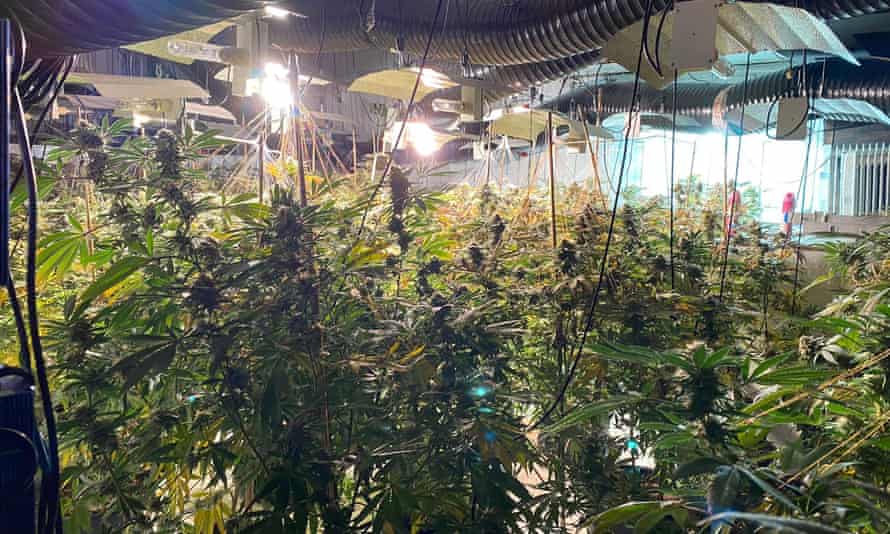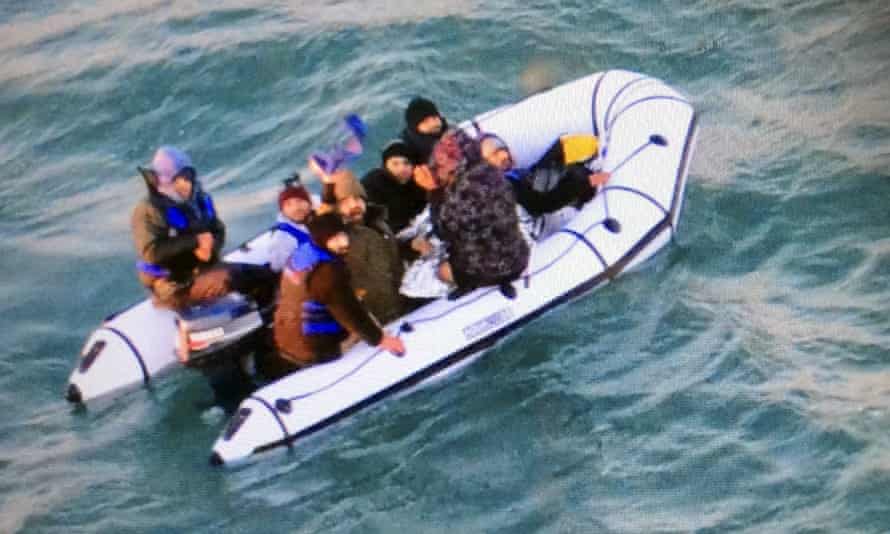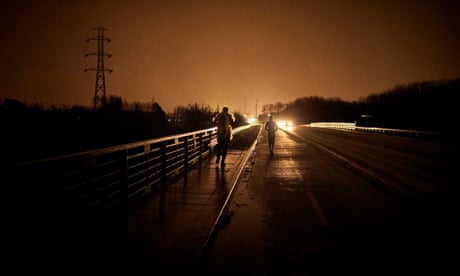The allegations have shocked Serbians with the European parliament demanding an investigation into to how a major case of human trafficking could have apparently been allowed to fester in the heart of Europe.
Yet Linglong factory was only the first stop in a much longer journey towards the UK and Europe for many of the workers found at the factory.
An Observer investigation has found that Serbia and Romania are being used as new gateways to Europe for smuggling and trafficking gangs who are using guest worker visa programmes to transport large numbers of Vietnamese workers into eastern Europe. There they are often exploited in factories and construction sites before some are transported across land borders into the EU and, eventually, to the UK.
At all stages along the way, Vietnamese workers are highly likely to fall into forced labour or debt bondage, often charged up to £30,000 for passage to the UK.
In 2019, the death of 39 Vietnamese migrants in a lorry container highlighted the dangers that many face when attempting to reach the UK. Those who do arrive safely are often forced to pay off their debts in nail bars, restaurants and cannabis farms, with Vietnamese people one of the largest groups of modern slavery victims in the UK year after year.
Nusrat Uddin, a trafficking specialist from Wilson Solicitors LLP, regularly acts for victims of trafficking and modern slavery in the UK. She said that many of her recent clients started their journey by flying on work visas into Serbia or Romania: “Almost all [our clients were] promised decent work with fair wages, but the reality is far from that. Many then travel onwards through Europe, again under the false premise of better conditions elsewhere.”
According to interviews with Vietnamese workers, the Vietnam to Serbia migration route began operating in the summer with more than 500 workers flying on guest worker visas from August-October. Each worker was charged around £1,700, generating at least £850,000 in revenue for recruitment agencies arranging visas, jobs and travel.
Tuan* travelled from Vietnam to Serbia on a guest worker visa after seeing an ad on Facebook promising well-paid work in a German-owned tyre factory. He ended up at Linglong.
“When I arrived I found that the factory was basically buying Vietnamese workers and when you got there you had to do whatever they told you to do,” he said.
He claims they took his passport and he was forced to sleep 50 to a room. “Many of us got Covid … and we didn’t even get any medicine,” he added. “The water was very bad, it was yellow and undrinkable and sour. The food was also very bad and not enough, sometimes we would go into the forest and hunt for food, anything we could catch, like rabbits.”
Linglong has previously denied that the workers were working in conditions of forced labour. In statements to Serbian media, the company said that it was not responsible for the workers but that they were employed by subcontractors and job agencies in Vietnam. The company said workers had now had their passports returned.
Tuan says that out of those he was working alongside at the Linglong factory, 30 have already left Serbia for the UK, France and Germany, and many more were planning to go.
“For people who want to go to the UK, going to Serbia first is cheap. It only costs 50m VND (£1,626) for the visa, whereas the people who died in the lorry had to go many months on a dangerous route. So this choice is an easy one.”
The Observer’s investigation found that workers who continued on to the EU and UK from the Balkans could take several routes, with smuggling networks taking Vietnamese people across the border into Romania and then on to Slovakia, Germany and France. They then waited in a makeshift camp for the chance to take an inflatable raft to the UK.
Mimi Vu, an anti-trafficking expert living in Vietnam, has spent the past months researching the links between bilateral visa schemes in eastern Europe and the exploitation of Vietnamese migrant workers.
“A key selling point to the Serbia route is that, like Romania, you can migrate legally through the reciprocal visa arrangements and it only costs a few thousand pounds, which is seen as a great bargain compared to the more traditional routes of going through Moscow or one of the central EU countries such as Poland or the Czech Republic into Europe, which can cost up to £30,000,” she said.
“In the case of the Linglong factory, people were either coming because they were promised work in a German-owned factory or as a new Balkans gateway to the UK and Europe.”

Vu says that the exploitation that workers like Tuan face when they arrive in countries such as Serbia and Romania also provides a huge incentive for workers to try to move into Europe and the UK in search of better paid work.
Debt is also a major driver for people to try to move.
The Observer has seen paperwork, called “Commitment not to escape forms” from Vietnamese recruitment agencies arranging guest worker visas for Serbia where workers must sign an agreement that their families must pay more than a year’s salary within a week if workers leave jobs.
“Most people who leave Vietnam have family who have raised money for them to leave and they feel they can’t go back without paying off their debts,” said Vu. “So if they’re not earning what they’ve been promised in Serbia then the promise of higher paid work elsewhere is a huge incentive to leave.”
Tuan says many of the Vietnamese he had been working with at Linglong had to raise thousands to pay for their passage into Europe.
“Some who had been working at the factory with me had arranged to go to the UK before they arrived in Serbia,” he said. “I think they have to pay [smuggling gangs] around £6,000 to get them there from Romania. The smugglers would call family members in Vietnam to arrange to get the money so they could continue with their journey.”
While Serbia is believed to be a new landing post used by criminal gangs, Romania, which signed a bilateral visa agreement with Vietnam in an effort to fill a huge manual labour shortage in 2018, is already established as a point of entry into Europe.
Many also find themselves trapped in exploitative and dangerous work when they arrive there.
Manh*, arrived in Romania with 60 other workers from Vietnam in 2019 to work for a major construction firm. By the end of his contract in 2021, half had crossed the border towards the UK and Europe.
“Many ran away just one or two months after arrival,” he said. Manh’s brother, who worked for a different company in Romania, was among the many who left the country. “The pay in Romania was too low,” he said.
Manh says he is now trapped in Romania. His contract expired in March and his employer has refused to extend it, leaving him working without a valid residence permit and unable to afford his flight home.
When asked if he had any plans to leave Romania to search for work, he replied: “It’s a secret.”
Over the past five years at least 231 Vietnamese people were intercepted trying to cross into Europe according to data from the Romanian border police. Hungarian police intercepted another 101 in the same period. Experts like Vu estimate this is only a very small portion of Vietnamese who leave Romania into western Europe.
“As a new modus operandi, Vietnamese citizens enter Romania legally, based on work visas, and are subsequently detected on their way out of the country, trying to illegally cross the border,” a spokesperson from the Romanian border police told the Observer.
Social media plays a central role for smuggling gangs. Facebook groups visited by the Observer offer “VIP” routes in private cars out of Romania. Packages are advertised with the dialling codes of the destination countries, with buyers able to pick the “44” package for the UK, “49” for Germany and “33 for France”. Prices fell during the pandemic, but a trip to the UK can still cost over £10,000.
The reality of these VIP trips is harsh. Vietnamese migrants caught trying to leave Romania illegally by the country’s border police have been found hiding behind boxes of fruit or packed in minivans with “fake walls”.
In the past year, people smuggling of Vietnamese migrants out of Romania has continued despite border restrictions caused by the pandemic.
Trung, 36, now lives in Germany undocumented after having worked legally in Romania, taking the journey in the midst of a locked-down Europe in October 2020.

Trung wanted to stay in Romania, but his employer refused to update the paperwork that would have let him remain legally in the country. He says he was faced with a choice of paying for forged paperwork or taking the risky journey to Germany.
“The pay in Romania is only slightly higher than in Vietnam,” said Trung, whose Romanian employer paid him US$750 per month. Trung knew the dangers of travelling west, but he went anyway. “I believe in fate. Deciding to go is like a game of cards: chances of success are 50-50.”
Yet for those trying to reach the UK, the perils are greater than those destined for France or Germany. Regardless of whatever VIP package they might have purchased to ensure safe passage, all must attempt the Channel crossing on flimsy rubber boats.
“Historically, Vietnamese smugglers have had their own networks helping them get people to the UK in the back of lorries, but after Brexit and the resulting driver shortages and the 2019 container deaths they have had to pivot to using boat crossings that are controlled by non-Vietnamese smugglers,” says Vu. “In interviews I’ve conducted with Vietnamese who have made it to the camps in Dunkirk or across the Channel to the UK, all have said that crossing by boat is the only option.”
She says that smugglers are telling Vietnamese in the makeshift camps in Dunkirk to stay apart and are then deliberately limiting the number of Vietnamese they are sending per boat so that they would be less visible among other ethnic groups.

Last week, it was revealed that one of the 27 people who drowned while attempting the crossing last month was Vietnamese. Media reports named him as Le Van Hau, from the Nghe An province in Vietnam, who reportedly paid around £10,000 to find legal work in Poland before leaving immediately for France to attempt the Channel crossing.
Once in the UK, and with thousands of pounds of debt, Vietnamese people become one of the most vulnerable groups to be trafficked into forced labour, debt bondage and sexual exploitation. Official Home Office figures show that Vietnamese were the third largest national group to be identified as victims of modern slavery. There were 653 Vietnamese people confirmed as victims of slavery in 2020, with the majority discovered in cannabis farms and nail bars.
Last month, in a freezing migrant camp in Dunkirk, two young Vietnamese men huddled together for warmth, one of a group of around 20 or 30 scattered among hundreds of others refugees in the wasteland of tents. They said they left their home in Vietnam because of flooding, and borrowed money from loan sharks for their visa to Serbia in order to travel to the UK to find work in nail bars. When they got to the UK, they would owe an additional £18,000.
“It has taken us two months to get here but finally the end is in sight,” said one, breaking off from a FaceTime call with his wife and small child in Vietnam. “I don’t know when I’ll get to go home, I can’t return empty-handed.”
This article was amended on 26 December 2021. Text was added to state that Lingling has previously denied that workers were faced with conditions of forced labour, and to more accurately reflect the nature of Tuan’s claims.
* Names have been changed
